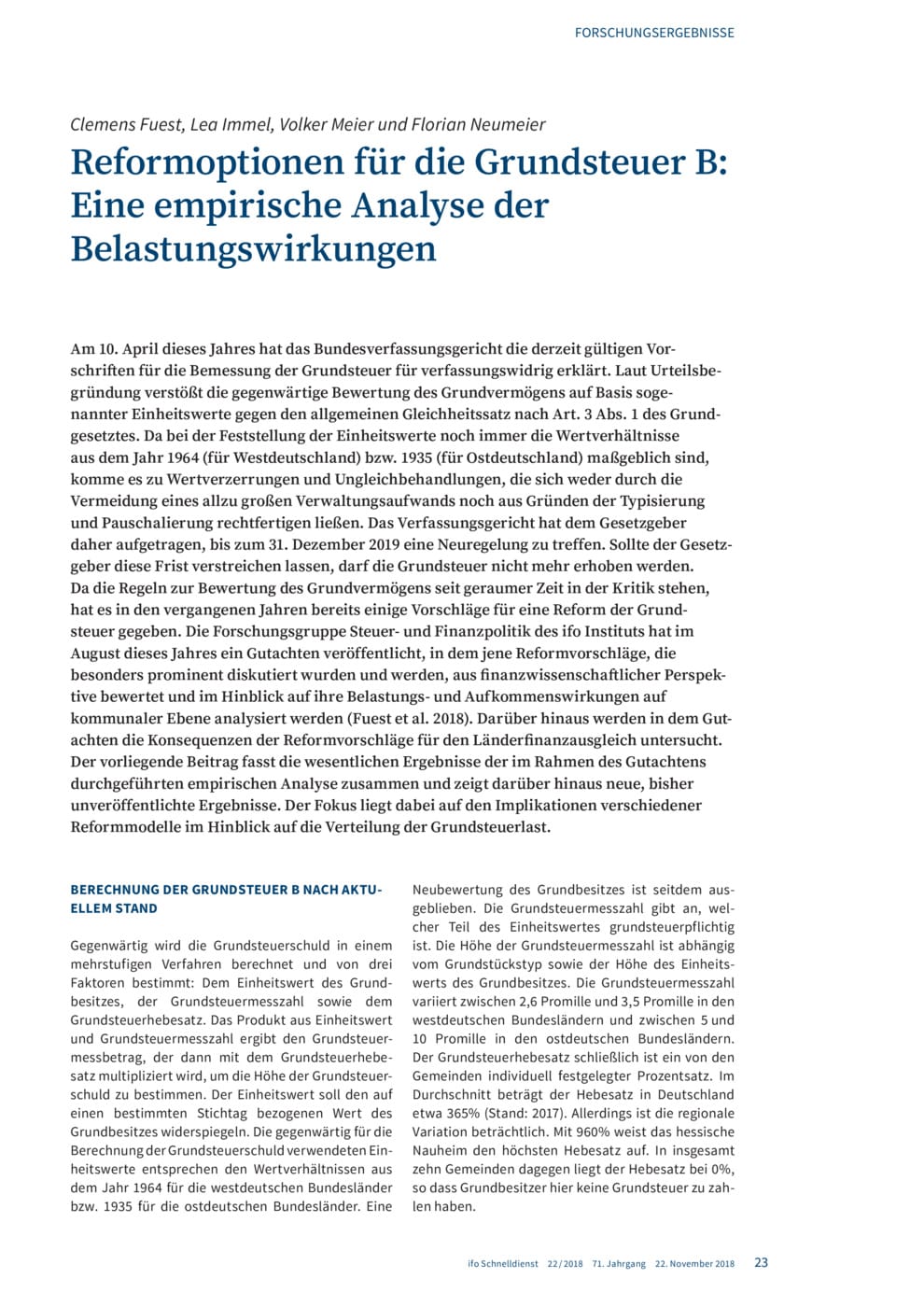Reform Options for Property Tax B: An Empirical Analysis of Burden Effects
ifo Institut, München, 2018
ifo Schnelldienst, 2018, 71, Nr. 22, 23-29

In April of this year, the Federal Constitutional Court declared the currently regulations for the assessment of property tax as unconstitutional. The legislator has been instructed to adopt a new regulation by 31 December 2019. The ifo Institute's Tax and Financial Policy Research Group has analysed the reform proposals that have been, and are currently being discussed, from a public finance perspective, assessed them with regard to their impact on burdens and revenues at the local level; and examined the implications of the reform proposals for the fiscal equalisation of states. This paper summarises the main findings of the empirical analysis. According to its results, policymakers should opt for a simple, area-based solution in the forthcoming reform of property tax and avoid time-consuming and costly calculations of market values. The argument that a value-based property tax would increase the fairness of tax burden distribution to such an extent that it would justify the effort involved in valuation is unconvincing. Property tax is an object tax that does not take into account the economic performance of taxpayers. If politicians want to include a value component in the assessment of property tax, they could resort to standard land values. As ifo’s calculations show, however, a municipal land tax based solely on standard land values would lead to very large shifts in the burden. However, a combination of standard land values and building areas could be a viable compromise. Like the pure area tax, this solution would also have the advantage of saving taxpayers and the tax authorities the considerable costs of calculating (and regularly updating) the individual market value for 35 million properties in Germany.